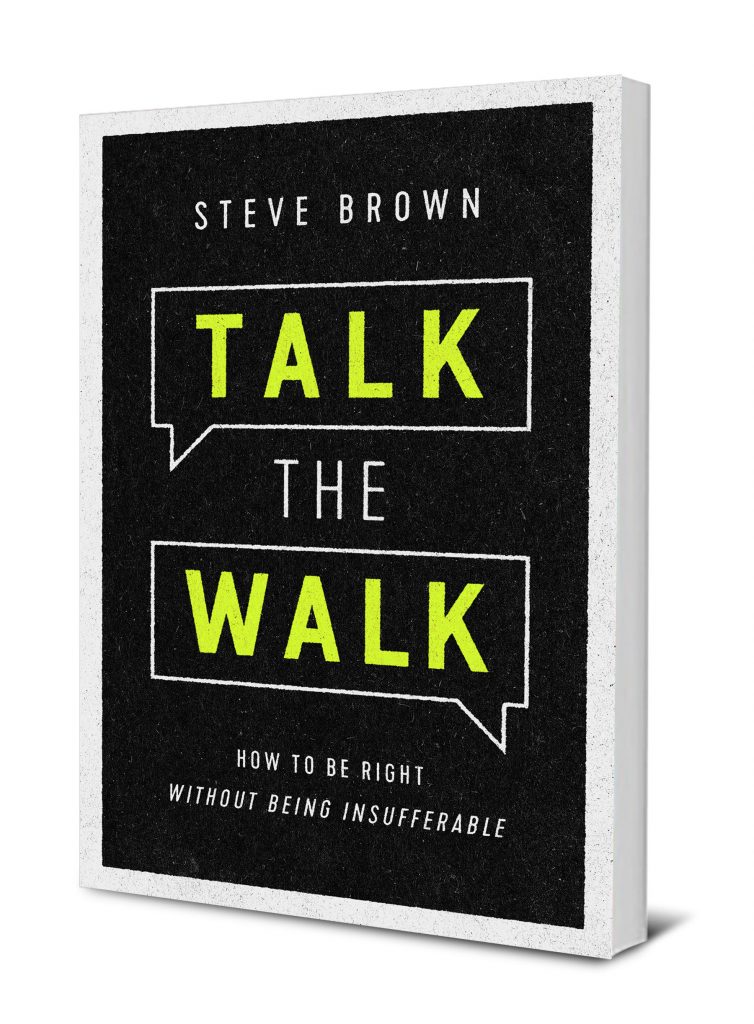Christian truth is about as welcome in today’s culture as a wet shaggy dog shaking himself at the Miss America Pageant.
Truth does not matter, but intolerance does. If the subject is salvation, Christian truth suggests that there are those who are saved and those who are not. If the truth is about sin, then some things are right and others are wrong. If it is about hell and heaven, it means that one place is hot and the other is not. If it is about forgiveness, then some are forgiven and others are not. Truth feels intolerant—and frankly, when I speak Christian truth, it sometimes feels that way to me.
Truth, by its very nature, divides and offends. That is what Jesus meant when he made the startling statement that he had not come to bring peace but to set children against parents and to create enemies of one’s own household (Matthew 10:35–36).
Christians are called to speak truth and, much of the time, to speak it to people who do not want to hear it. And they are constrained to do so. Paul said in 1 Corinthians 9:16, “For if I preach the gospel, that gives me no ground for boasting. For necessity is laid upon me. Woe to me if I do not preach the gospel!” Paul was saying that he could not keep quiet.
Jeremiah the prophet had the same experience, “If I say, ‘I will not mention him, or speak any more in his name,’ there is in my heart as it were a burning fire shut up in my bones, and I am weary with holding it in, and I cannot” (Jeremiah 20:9). That is the normal experience of every Christian who knows the truth.
But with all of that being said, we Christians must be careful in what we say, how we say it, and even if we are to say it at all. Jesus cautioned that we should “not give dogs what is holy” nor “throw your pearls before pigs lest they trample them underfoot and turn to attack you” (Matthew 7:6). The truth we have is precious, dangerous, and explosively powerful in the way it can heal or hurt.
There are times when silence really is golden.
All Christians need to learn is that sometimes there is great value in silence—even in their witness to the world.
Sometimes it is best to be silent and to let love, freedom, and joy do the talking. There are some things Christians cannot say without words, but there are other matters that are only confused by words. My wife, who is a musician, has often said to me that music is the universal language. Sometimes it is best to remain silent and hear the language of music. Just so, sometimes it is best to speak the language of silence.
It is a cliché, but nevertheless there is some truth to believing that Christians are the only Bible unbelievers ever read. However, with due respect to that point of view, let me say that most of us sin so much, betray our principles so often, and fail so obviously in our Christian walk that the message is mixed and muddled.
But what if we remained silent by not defending ourselves? What if we remained silent when others are condemning those whose lifestyle, politics, or religious views are deemed unacceptable? What if we remained silent and refused to be the social, political, and religious critic of every opinion that wasn’t our own? What if we remained silent in the face of rejection? What if we refused to share the secrets we’ve been told or tell the stories we’ve overheard? What if we remained silent and overlooked the foibles of others? What if we looked at the pain of our neighbor and just loved him or her, instead of trying to fix the unfixable? What if our response to confusion, fear, and guilt was simply, “I know”?
There is a powerful witness in that kind of silence.
TALK THE WALK: HOW TO BE RIGHT WITHOUT BEING INSUFFERABLE
This attitude-altering book invites Christians to cultivate boldness and humility in communicating gospel truth. By uncovering self-righteousness and spiritual arrogance, Steve Brown shatters stereotypes and helps believers consider how they present the good news without watering it down.






